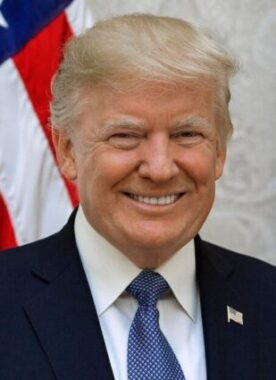What to Expect in 2025 as Donald Trump Returns to the Presidency: Global Geopolitical Impact and Key Issues
Overview of Donald Trump’s re-election in 2025 and his strong stances on international relations, immigration, national security, and economic policies.
A look at the potential consequences for both the U.S. and global geopolitical landscapes, including insights into how his presidency may impact citizens and immigrants over 50 living in the U.S.
1. Foreign Policy and Relations with Global Allies and Adversaries
A review of Trump’s approach to traditional alliances, such as NATO, and possible renegotiations or changes in these relationships.
Analysis of likely tensions or partnerships with nations like China and Russia, as well as implications for international stability.
The potential effects on global economic and strategic alliances, like the European Union, given Trump’s stance on prioritizing American interests.
2. National Security and Defense Spending
Expectations of increased investment in national defense and security measures, with a focus on protecting U.S. interests and modernizing military resources.
Potential for intensified use of economic sanctions against adversarial countries, which could have global ripple effects.
Concerns surrounding nuclear arms control and the risk of a renewed arms race due to shifts in defense policies.
3. Trade and Economic Policy
Examination of Trump’s stance on trade, with an emphasis on “America First” policies, bilateral agreements, and protecting American industries.
Possible increased trade tensions with China and effects on the global economy, particularly in sectors like technology and manufacturing.
The impact of tariffs and trade barriers on emerging markets and international finance, affecting economies worldwide.
4. Tensions with China and Asian-Pacific Strategy
Analysis of potential escalation in tensions with China, especially regarding Taiwan and the South China Sea.
How Trump’s policies may influence Asian-Pacific stability and heighten the risk of economic and military conflict.
Global concerns regarding a trade war with China and its potential effects on the worldwide economy and political landscape.
5. Middle East Strategy and U.S. Presence
Expectations for U.S. policy in the Middle East, particularly concerning countries like Iran, Syria, and Afghanistan.
How continued support for Israel might alter regional dynamics, increasing tensions with Iran and other Middle Eastern nations.
Potential for escalations in regional conflicts or even U.S. military interventions to maintain strategic influence.
6. Cybersecurity and Technological Defense
Increased investment in cybersecurity to protect against threats from adversarial nations and non-state actors.
The role of AI and other advanced technologies in monitoring and countering potential cyberattacks on the U.S.
Implications for data privacy and cybersecurity in a rapidly digitizing world, especially for businesses and government infrastructure.
7. International Organizations and Trump’s Stance on Global Cooperation
Trump’s stance on the U.S. role in organizations such as the United Nations, NATO, and the World Trade Organization.
Potential weakening of these institutions or redefined roles under Trump’s influence, especially regarding human rights, climate, and peacekeeping.
Reactions from other global powers and potential shifts in the geopolitical landscape as a result of U.S. policy changes.
8. Economic and Market Implications for Older Adults
Possible economic instability due to Trump’s policies and their effects on retirement plans, healthcare, and living costs.
Consideration for those over 50 who may be on fixed incomes and dependent on a stable economy for retirement security.
How these policies could impact investment markets, healthcare access, and long-term care services crucial to aging populations.
9. How Trump’s Policies May Affect Immigrants Over 50 Living in the U.S.
Challenges for Older Immigrants: Trump’s immigration policies may prioritize stricter border security, more rigorous visa protocols, and increased scrutiny on green card holders. These measures could affect older immigrants who rely on family-sponsored visas or face uncertainties about residency.
Financial Security and Healthcare Access:
Immigrants over 50 may face additional hurdles in accessing public benefits like Social Security or Medicare due to changes in eligibility or stricter requirements.
If Trump’s policies result in higher healthcare costs, older immigrants, particularly those with limited income or without private insurance, could be disproportionately impacted.
Employment and Job Market:
Trump’s emphasis on American job protection could affect immigrants’ employment opportunities, particularly those working in industries vulnerable to automation or downsizing.
Older immigrants may need to consider upskilling or reskilling to remain competitive in the evolving job market.
Pathways to Citizenship and Legal Residency:
Potential limitations on pathways to citizenship or delays in immigration processing may create uncertainty for aging immigrants, affecting their ability to plan for long-term residency.
Family reunification policies may also see changes, impacting immigrants who rely on family-based support structures as they age.
10. Financial Planning for Older Adults Amid Geopolitical Uncertainty
Strategies for Resilience:
Diversify Income and Investments: Given the economic uncertainties under Trump’s policies, financial advisors recommend older adults diversify income sources, such as freelance work, remote consulting, or passive investments.
Secure Healthcare Coverage: As healthcare costs may rise, it’s advisable for older adults to review and secure comprehensive health plans, particularly if they’re reliant on Medicare or Medicaid.
Stay Informed About Policy Changes: Keeping up with immigration and economic policy changes is crucial for those above 50, especially for immigrants, to adapt quickly to shifts in eligibility and requirements.
Financial Literacy and Planning: Older adults, particularly immigrants, may benefit from financial literacy programs to understand budgeting, investments, and retirement planning under changing economic conditions.
Opportunities for Continued Learning and Work:
Upskilling programs and community resources can help older adults remain active in the workforce, especially in areas with a high demand for experience, like consulting, advisory, and part-time roles that align with their expertise.
A recap of the potential impacts of Trump’s policies on the U.S. and global landscapes, particularly for individuals and families navigating new immigration and economic policies.
Emphasis on the importance of staying prepared and informed for those over 50, especially immigrants, as they face unique challenges and opportunities in the evolving geopolitical landscape under Trump’s administration.




